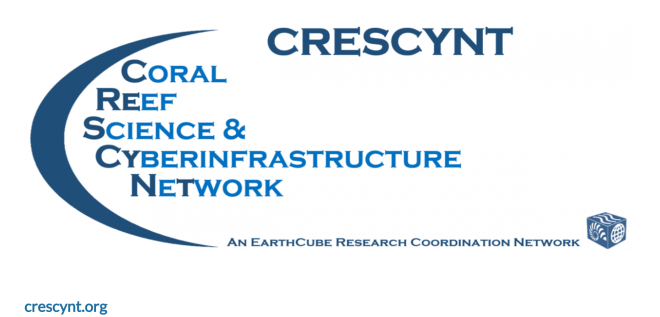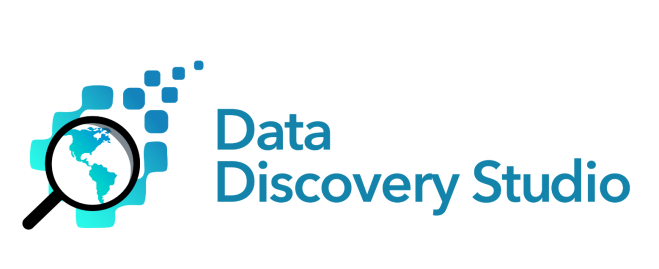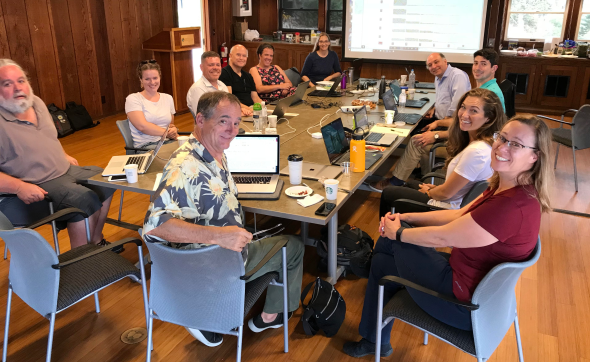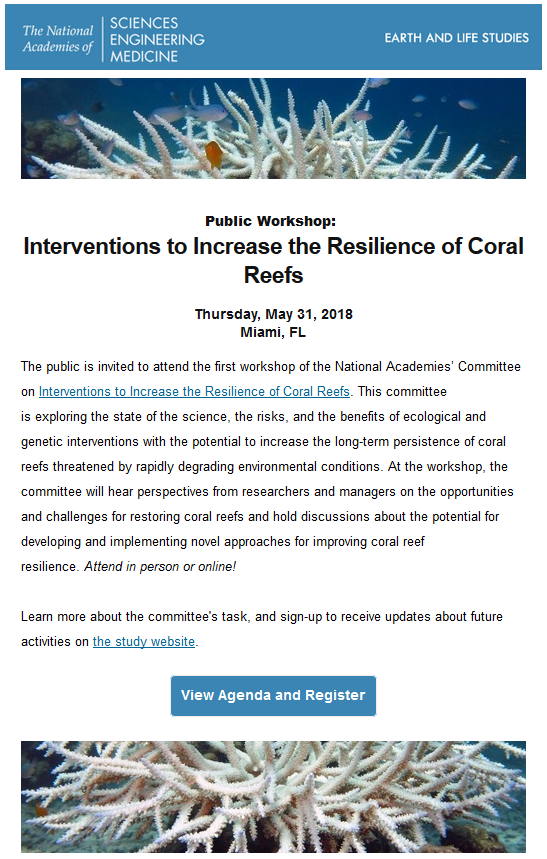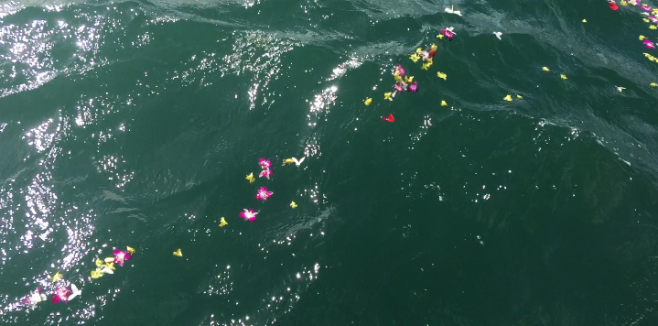
Dear Friends,
It has been very hard to say goodbye to the incomparable Ruth D. Gates.
Her ashes were taken aboard the Hōkūleʻa and released into Kāneʻohe Bay, Hawaiʻi in a ceremony on November 18, 2018.
If you miss her voice, as we do, the Gates Coral Lab site has links to some videos featuring Ruth and her publications. We love this one, where Ruth did a 30-min social media interview answering people’s questions. For introductory teaching and outreach we love this one, where Ruth explains corals and coral reefs in an extraordinarily accessible way.
If you wish to read them, here are links to some in memoriam articles and obituaries from multiple perspectives: The Atlantic, the University of Hawaii, The New York Times, the ARCS Foundation, and the Honolulu Civil Beat.
When asked by an audience member at a screening of Chasing Coral, “What should I do to help corals and reduce human impact on reefs?” her response was essentially: 1 – Pick Something, and 2 – Start. She believed in the power of every human being to step up and make a difference in some way, knew the diversity of talents and skills and people essential to moving forward, and through the radiance of her brilliance and passion, inspired us all to do more.
The Gates Coral Lab projects that were already in motion will continue with the students, postdocs and staff whose growth she fostered. We know we share with you this common yoke and dedication to the work of inquiry and protection for coral reefs and the planet. Those of us left behind may not have Ruth’s spectacular eloquence, insight, brilliance and spark, but we all can and must do what we are capable of doing to advocate for coral reefs, the planet, and its people.
Ruth had a vision of coral reef science as deeply collaborative, deeply integrative and multidisciplinary, and essentially multiscale. She also loved seeing scientists, managers, data and technical people working together and alongside educators, artists, and citizens for the good of coral reefs and the planet. We are all part of her collective legacy.
We’ll close with Ruth’s own words, taken from an interview posted at Paul G. Allen Philanthropies. In addition to the scientific acuity and perceptiveness of her research, Ruth’s practical and forward-looking philosophy is part of how she inspired so many.
What would you recommend we do in our daily lives to stem the loss or support the survival of corals?
We can all play a part in a solution to the problem on reefs and the solution for the planet. It really depends on what you want to do. We’re all discussing green energy, the move towards electric cars, the embracing of solar technology that is a much cleaner source to offset the burning of fossil fuels. If you’re somebody who’s politically active you could lobby your local politician to support all action that would advance an agenda that would really help protect the coral reef. Maybe you’re somebody who wants to go out and clean up a beach because everything that we take off that beach will no longer wash onto the reef and potentially damage it. Maybe you’re a boater who drops an anchor, and instead of dropping an anchor you could talk to your local managers and ask for them to put a permanent mooring in so that when you tie up your boat you don’t drag your anchor across a reef. I think what I always say to people is choose a solution that is best for you. And start doing it.
What makes you most optimistic about the work you are doing?
I’m a believer that people can pretty much do anything. Unfortunately, we seem to prefer to fix problems than to stop the problem in the first place. But we have a problem. It’s a challenge and there are many young scientists who are committed to solving the challenge of “can we save the reefs?” I’m really invigorated by the energy from the young scientists I work with. I’m invigorated by the amount of creativity that a problem of this magnitude forces in the scientific communities. I feel we can solve any problem. But to do that we have to collaborate with people that we potentially don’t usually work with. It forces us really to change the way we as scientists do business, I think. To me that’s a very exciting framework.
Ruth D. Gates, March 28, 1962 – October 25, 2018
